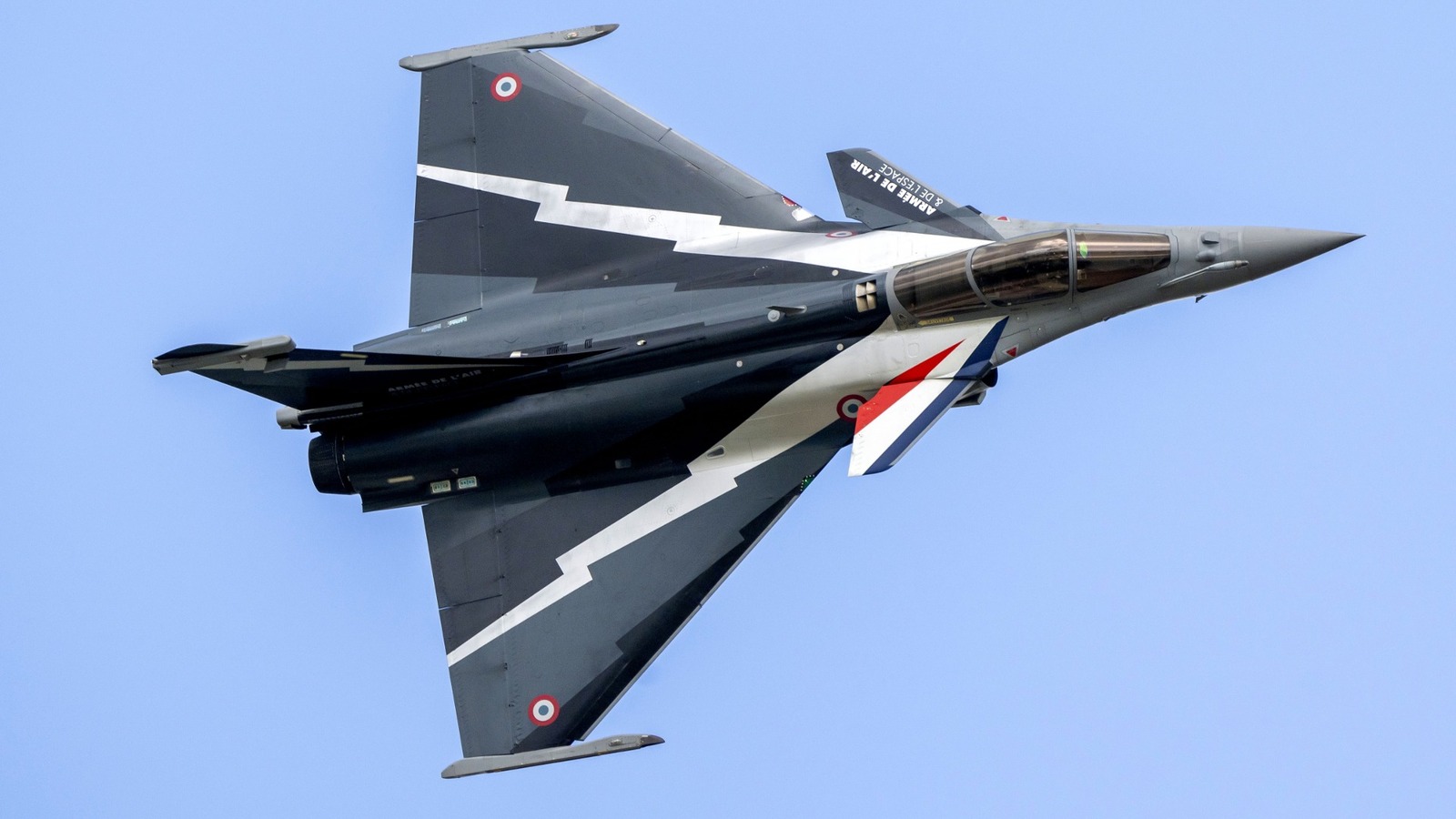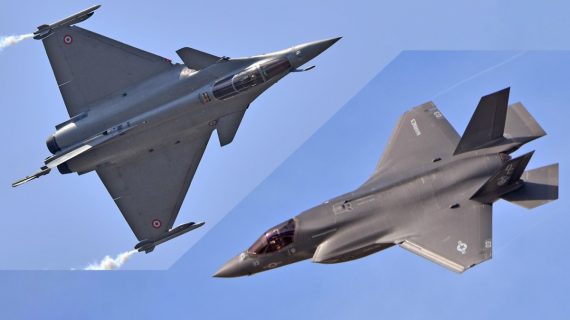France has ignited a global controversy by formally accusing China of orchestrating a covert campaign to undermine the sales and reputation of its flagship Rafale fighter jets. French intelligence and defense officials allege that Chinese embassies and defense attaches engaged in a systematic effort to discredit the Rafale, particularly after the jets’ high-profile deployment by India in the May 2025 India-Pakistan conflict. The allegations have triggered a diplomatic war of words, with China vehemently denying any wrongdoing, while the episode raises critical questions about the intersection of defense sales, disinformation, and geopolitical rivalry.
The allegations by France against China over undermining Rafale jet sales highlight the increasingly complex interplay between defense technology and international diplomacy. Modern arms deals are not merely commercial transactions but are deeply intertwined with geopolitical strategies and alliances. For France, the Rafale is not just a fighter jet but a symbol of national technological achievement and strategic influence. Any attempt to discredit it threatens not only economic interests but also France’s standing as a global defense partner.
China’s growing ambitions in the global arms market have been evident for years, with significant investments in developing advanced military hardware and expanding export networks. By challenging established players like France, China aims to reshape the competitive landscape and assert itself as a dominant supplier, particularly in Asia and Africa. This rivalry extends beyond hardware to include influence over governments, defense policies, and regional security architectures, making the Rafale dispute a microcosm of broader strategic competition.
The role of disinformation in this dispute underscores a new dimension of modern conflict—information warfare. In an era where social media and digital platforms can rapidly shape perceptions, states and non-state actors alike use these tools to influence opinions and decisions. The alleged use of AI-generated content and manipulated visuals against the Rafale reflects how technology can be weaponized to sway international markets and diplomatic relations, complicating efforts to maintain transparency and trust.
French Intelligence Uncovers Global Disinformation Campaign Targeting Rafale
According to French officials, China mobilized its embassies and defense attaches worldwide to cast doubt on the effectiveness and reliability of the Rafale fighter jet. The campaign is said to have intensified after the four-day India-Pakistan clashes in May, where Rafale jets played a prominent role in Indian airstrikes. French authorities claim that Chinese diplomats directly lobbied countries that had already placed orders for Rafales—most notably Indonesia—urging them to reconsider further purchases and instead opt for Chinese-made fighter jets.
The French findings suggest that the campaign was not limited to diplomatic channels. It reportedly included an extensive online effort, featuring viral social media posts, manipulated images showing alleged Rafale debris, AI-generated content, and even video-game simulations depicting Rafale failures in combat. French researchers specializing in online disinformation identified a surge in new social media accounts spreading narratives of Chinese technological superiority over the French aircraft.
India-Pakistan Conflict and the Battle for Perception
The recent India-Pakistan aerial confrontation provided the backdrop for the disinformation campaign. During the hostilities, India’s Rafale jets were at the forefront of its operations, drawing global attention to their combat performance. In the aftermath, Pakistani officials claimed to have downed several Indian planes, including three Rafales—a claim not confirmed by India but widely circulated online and echoed by Chinese diplomatic representatives in meetings with other nations.
French officials believe that the timing and content of these claims were deliberate, with China and Pakistan seeking to exploit the fog of war to amplify narratives questioning the Rafale’s effectiveness. The French defense ministry has stated that the campaign was not random but targeted a “strategic French offering” that represents both industrial reliability and solid international partnerships. By attacking the Rafale, the campaign aimed to undermine not just a single aircraft but the broader credibility of France’s defense industry and its strategic autonomy.

Economic Stakes and Geopolitical Rivalry Over Rafale Sales
The Rafale jet is central to France’s defense exports and diplomatic outreach, especially in Asia, where China is asserting itself as a dominant force. Dassault Aviation, the manufacturer, has sold hundreds of Rafales to date, with a significant number delivered to export customers including India, Egypt, Qatar, Greece, Croatia, the UAE, Serbia, and Indonesia. Indonesia alone has ordered dozens of Rafales and is considering additional purchases.
French officials argue that China’s campaign is part of a broader strategy to assert dominance in the Asian arms market and weaken France’s industrial and diplomatic standing. By promoting Chinese fighter jets as superior alternatives and sowing doubts about the Rafale, Beijing is seeking to redirect lucrative contracts and reshape the balance of power in the region. The French defense ministry has described the campaign as an attack not only on a single aircraft but on the credibility of France’s entire defense industrial base.
China Denies Allegations, Calls Them “Groundless Rumours and Slander”
China has categorically denied the French accusations. The Chinese Ministry of National Defense has dismissed the reports as “pure groundless rumours and slander,” reiterating Beijing’s commitment to a prudent and responsible approach to military exports. Chinese officials argue that their defense equipment is developed to ensure national security, not to compete unfairly or to undermine other countries’ products. Chinese state media and military experts have also rejected the notion of a coordinated disinformation campaign, calling it an attempt by France to deflect criticism and protect its commercial interests.
Despite these denials, French officials maintain that the evidence points to a systematic effort to influence the global arms market. They cite the sudden proliferation of anti-Rafale content online, the timing of diplomatic interventions, and feedback from countries approached by Chinese defense attaches as proof of a concerted strategy. The dispute has further strained relations between Paris and Beijing, already tense over issues ranging from trade to regional security.
Implications for India, the Global Arms Market, and Strategic Alliances
India, as a major operator of the Rafale and a key French defense partner, finds itself at the center of this controversy. The Indian Air Force’s deployment of Rafales during the May conflict was closely watched by regional militaries and defense analysts. Any doubts cast on the jet’s performance could influence future procurement decisions by other countries and affect India’s own defense posture.
The episode also raises wider questions about the role of disinformation, lobbying, and strategic messaging in the global arms trade. As major powers vie for influence and market share, the battle is increasingly fought not just with technology and contracts, but with narratives and perceptions. France’s response—publicly calling out what it sees as an orchestrated campaign—signals a new willingness to confront such tactics head-on, both to defend its economic interests and to uphold its reputation as a reliable arms supplier.
Conclusion: A New Front in the Global Arms Race
The clash between France and China over Rafale jet sales is more than a dispute over aircraft; it is a reflection of the intensifying competition for influence, prestige, and economic advantage in the 21st-century arms market. As France seeks to protect its flagship export and China pushes to expand its footprint, the outcome will have lasting implications for defense industries, international alliances, and the future of military procurement worldwide.

India’s position in this controversy is particularly significant given its status as a major Rafale operator and a key strategic partner of France. The Indian Air Force’s deployment of Rafales during the recent conflict showcased the jet’s capabilities on an international stage, making India a focal point for both praise and criticism. How India navigates this dispute—balancing its defense needs, diplomatic relations with France and China, and regional security concerns—will have implications for its broader foreign policy and military modernization efforts.
The dispute also brings attention to the challenges faced by countries procuring advanced defense systems amid competing narratives and pressures. Buyers must weigh not only technical specifications and cost but also geopolitical considerations and the reliability of suppliers. The Rafale controversy may prompt nations to adopt more cautious and comprehensive evaluation processes, factoring in potential disinformation campaigns and diplomatic pressures as part of their procurement strategies.
Looking ahead, the France-China Rafale dispute may set precedents for how defense export conflicts are managed in an increasingly interconnected and contested global environment. Transparency, robust intelligence sharing, and international cooperation could become essential tools to counteract disinformation and protect the integrity of defense markets. For France and China, the outcome of this dispute will influence not only their bilateral relations but also their roles as influential players in the evolving global arms trade.
The diplomatic fallout from the Rafale dispute is likely to reverberate through international forums and future arms negotiations. As both France and China seek to defend their positions, other nations will be closely observing the tactics employed and the responses from global institutions. This episode may prompt calls for clearer norms and greater oversight in the global arms trade, especially regarding the use of information campaigns and the ethical responsibilities of major exporters. The willingness of France to publicly confront these issues could inspire other countries to take a firmer stance against similar tactics in future defense dealings.
Ultimately, the controversy serves as a stark reminder of the high stakes involved in the modern arms race, where technology, reputation, and influence are as critical as the hardware itself. As nations continue to invest in advanced military capabilities, the battle for narrative control and market dominance will intensify. For India and other countries navigating these turbulent waters, building resilient defense partnerships and fostering transparency in procurement processes will be essential to safeguarding both national security and international credibility.
Follow: Dassault Rafale

